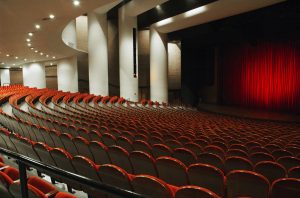
Hey Diddle Diddle…Humpty Dumpty sat on a wall…Little Bo Peep. as a parent or an educator, you can probably rattle the words off the tip of your tongue in any of those nursery rhymes. They stick with us, and we in turn pass them on to our children. But did you know that they actually are great learning tools for kids?
Benefits of Rhyme Time
If you think back to the most popular songs and stories of your childhood, you will probably realize many of them use simple, repetitious rhyming verses. This is not by accident. Rhyming sounds from an early age give the young preschool brain the foundation it needs for understanding how to read and spell. When a child chants “Mary Mary Quite Contrary” they are laughing and having fun, but their brains are making connections of sounds and syllables that will only benefit them when they first put their eyes to paper and start reading.
Plus, nursery rhymes allow a child’s first interaction with stories to be fun. Seth Lerer, a Humanities Professor at UC San Diego, said that even if the life lessons may go over a child’s head, their true value lies in letting kids enjoy and have fun, often in group settings where they can sing and play with other kids their age.
They Make for Great School Plays
Children love being silly and the center of attention. They love it when their friends and the adults around them laugh and play with them. The familiar rhymes of their childhood are a perfect starting point, then, for theater. For example:
Ba Ba Black Sheep
This is one story that easily translates into a fun play. A little make-believe, a few kids for the sheep and the farmer, and even some large bags of fabric are all you need to have a delightful play. Three bags full can even become a teaching moment for math and counting.
Little Bo Peep
Bo Peep is a fun song to sing, and a great play for a little girl to show how strong and brave she can be.
Hey Diddle Diddle
This classic story is full of humor, classical characters, and a story that doesn’t make any sense but everyone loves anyway. If the school has a larger group of children and needs a bigger cast, it’s a fun way to engage everyone.
Special Benefits to Play
Preschool performances are often messy and disorganized, but inevitably lots of fun. While kids learn to perform their roles, they learn to hone their creative skills into a fun and imaginary adventure. They also learn how to interact and cooperate with other students and can see how that teamwork lets them all do something that none of them could have done alone. Even if they never go on to a career in the theater, those are life lessons that can never be taught too early.